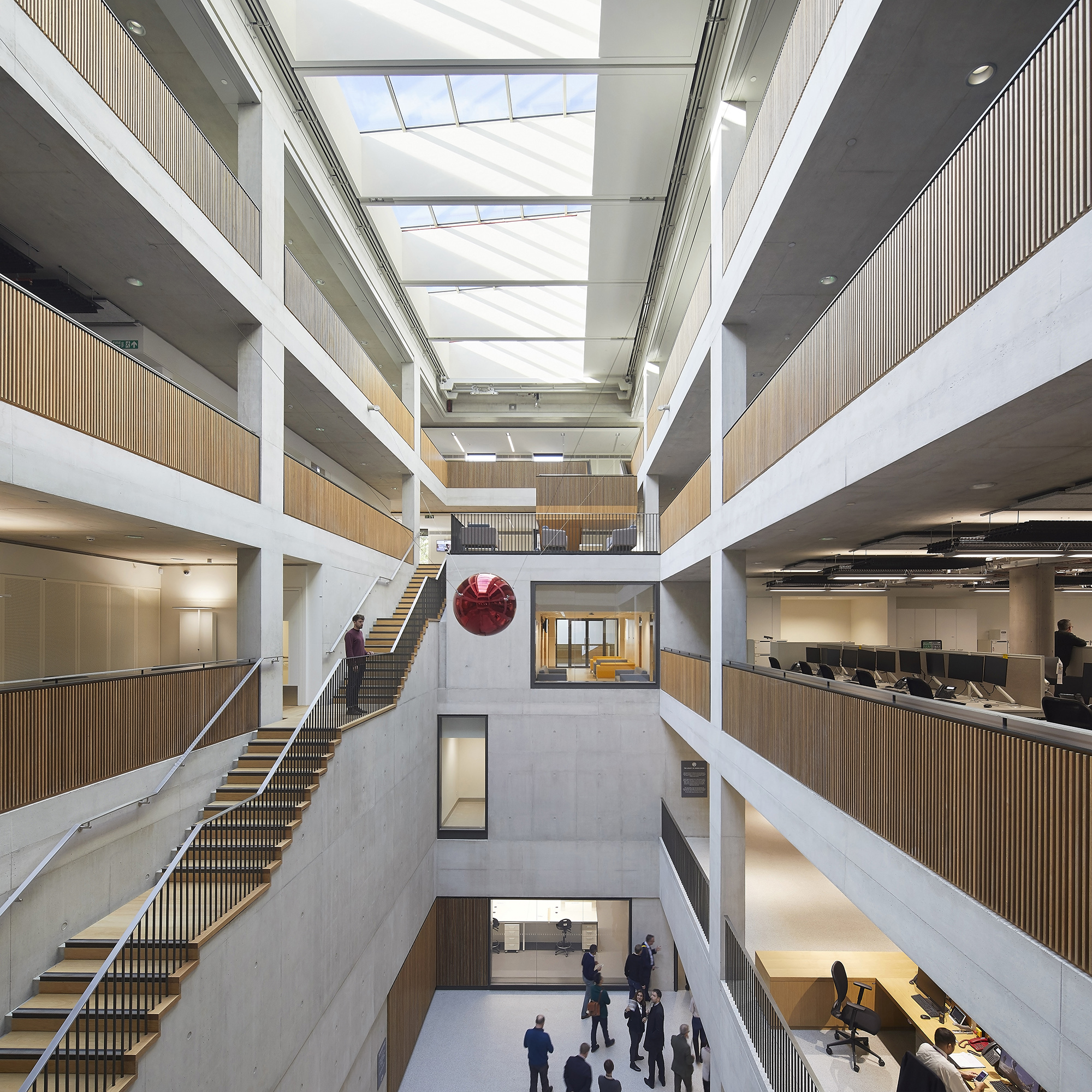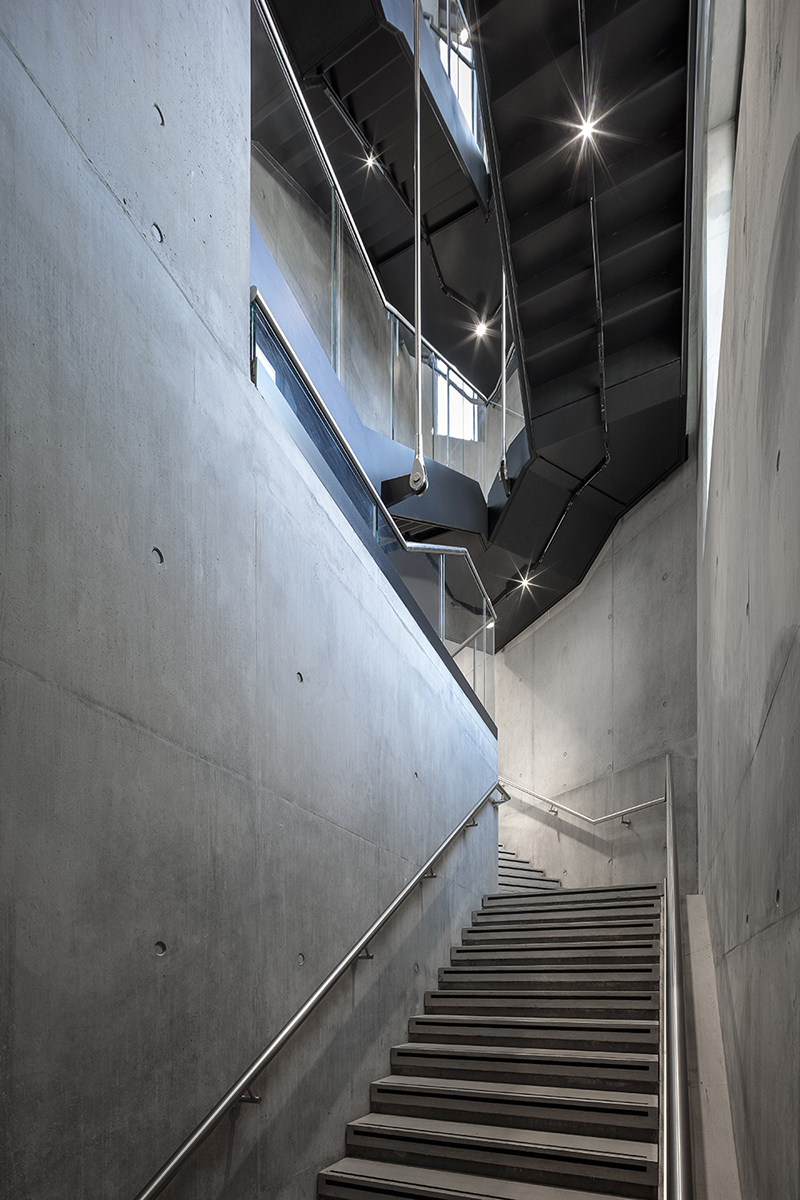The presentations for this evening feature recently completed educational buildings, each demonstrating ways in which concrete can be used sustainably.
University College London's new Student Centre by Nicholas Hare Architects and the Bobby Moore Academy, Secondary School, Stratford by Penoyre & Prasad Architects both use the thermal mass of the concrete structure for energy efficiency, but with different strategies to suit the specific needs and locations of each project. The design teams will be giving an insight into the design development of the projects, the specification and construction of visual concrete, but also the use of low carbon cement, recycled aggregates and design strategies to extend the usable life of the buildings.
The event is produced by The Building Centre and The Concrete Centre and is hosted by Elaine Toogood, Senior Architect at The Concrete Centre.
Speakers:
UCL Student Centre presented by
– David Tompson, Nicholas Hare Architects
– Jeffrey Blaylock, Curtins
Bobby Moore Academy, Secondary School presented by
– Anna-Lisa Pollock, Penoyre & Prasad
– Richard Williams, Balfour Beatty
The evening presentations will begin at 6.30pm and will be followed by an audience Q&A and a drinks reception.
The event is free but booking is essential. As this is a joint event between The Concrete Centre and The Built Environment Trust, your booking details for this event will be provided to both parties.
Case Studies
© Nicholas Hare Architects
Designed to be ‘an exceptional environment for student learning’, the UCL Student Centre is located adjacent to the Bloomsbury Theatre, at the heart of the university’s Bloomsbury campus.
A key aspect of the design was to create a high-quality building, in terms of finish, longevity, and to be fully flexible as well as adaptable to the changing needs of UCL over the long life of the building. The brief included 1,000 study spaces for students, a Student Enquiries centre, a café and space for exhibition.
With four floors above ground, plus two basement stories a range of concrete construction solutions were employed to form the structure. High quality exposed concrete surfaces provide durability and thermal mass. Embedded cooling pipes set within the exposed concrete frame are connected to boreholes beneath the basement to provide free cooling as part of a low energy, low carbon mixed-mode strategy. The building has achieved BREEAM Outstanding at the design stage assessment.
Bobby Moore Academy, Secondary School, Stratford
© Dennis Gilbert
This new secondary school for 1140 pupils is located in the Queen Elizabeth Olympic Park in Stratford on one of the smallest secondary school sites in London. The major challenge for the design was accommodating the 9,240m2 building on the tiny triangular plot of less than 3900m2, while maximising external playspace. The result is a high rise school housed in innovative design comprising a diverse range of learning and teaching spaces ranged over six storeys.
Designed in consultation with the David Ross Education Trust and the London Legacy Development Corporation, the school has been organised to be fully inclusive, offering community-accessible facilities. An internal ‘street’ forms the backbone of the school, with voids punctuated on each level to connect floors and provide light deep into the plan via skylights. Situated in the shadow of three iconic Olympic Structures – the stadium, Orbit and Aquatics centre, the building has a bold sculptural form presenting a civic presence to the park.
The majority of teaching spaces are naturally ventilated, utilising low energy heat recovery units to blend incoming fresh air with outgoing stale air. The flat slab cast in situ concrete frame is exposed to provide thermal mass and long term adaptability. It also includes 25% recycled aggregate, all of which helped contribute to the buildings BREEAM Excellent certification.
The event is produced by The Building Centre and The Concrete Centre and is hosted by Elaine Toogood, Senior Architect at The Concrete Centre.







_Tate_St_Ives_main_gallery©Hufton_Crow_PRIMARY_IMAGE_(1).jpg)